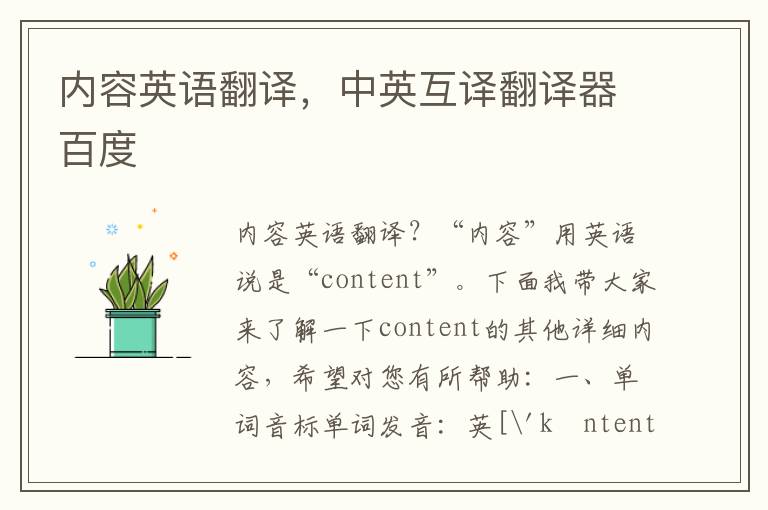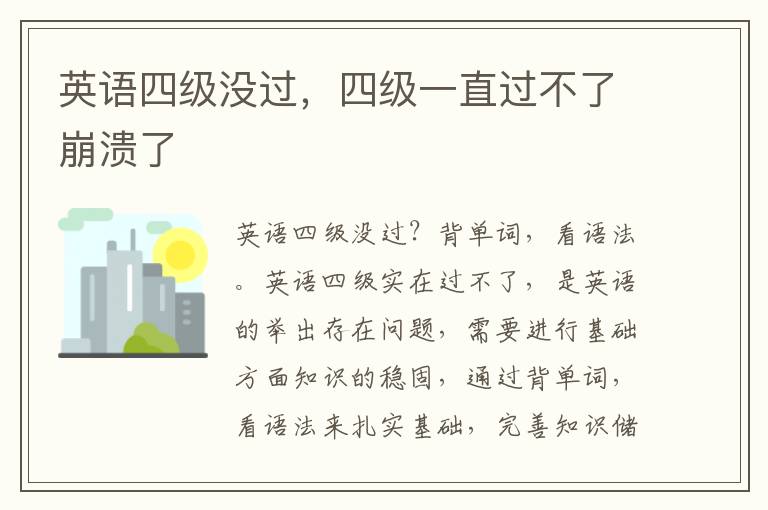【简介】感谢网友“雕龙文库”参与投稿,这里小编给大家分享一些[db:SEO标题],方便大家学习。
When doom-mongers predicted that the Great Recession would lead to the vampire of 1930s protectionism rising from the dead, they may have been watching the wrong graveyard.
末世论者预言这次“大衰退(Great Recession)将导致二十世纪三十年代盛行的贸易保护主义死灰复燃,但他们的注意力也许放错了地方。
Since the global financial crisis struck in 2010, worldwide increases in import tariffs of the type seen during the Depression have been largely absent. But governments, richer with cash and regulatory power than in the 1930s, have found other ways to back their struggling producers at a time of deficient global demand. Disputes over state subsidies are spreading, the trade law to constrain them is not easy to use, and few governments can throw stones without worrying about the glass in their own houses.
自2010年全球金融危机爆发以来,基本没有出现大萧条(the Depression)时期世界各国普遍调高进口关税的情形。各国政府已经找到了其他方式为苦苦挣扎的国内企业在全球需求不足之际提供支持;相对于二十世纪三十年代,各国政府当前拥有更充裕的资金和更大的监管权力。由政府补贴引起的贸易争端日益增多,而旨在控制补贴的贸易法规运用起来却很困难。几乎没有哪国政府能对别国提起贸易诉讼而不必担心自己是否会成为反诉讼的目标。
Some interventions have been crisis-related, like the many bailouts of car and financial services industries – France continues to proffer aid to the troubled carmaker PSA Peugeot Citro?n – but others predate the global recession. China, in particular, has for more than a decade raised hackles with an aggressive state-led growth model, supporting ex-port industries with measures including direct subsidies, tax breaks, export credits, cheap land and electricity, and subsidised loans from state banks.
部分政府干预措施与金融危机有关,例如各国对汽车以及金融服务行业的多次救助——法国政府目前仍在向陷入困境的汽车生产商PSA标致雪铁龙(PSA Peugeot Citro?n)提供援助——但其他一些政府干预措施推出的时点则早于此次全球衰退。尤其是,中国十多年来持续推行的政府主导型激进增长模式就触怒了贸易伙伴,中国支持出口行业的方式包括:政府直接补贴、税收减免、出口信贷、廉价的土地和电力,以及来自国有银行的补贴贷款。
An EU official says: “The subsidies issue is nothing less than a question of how to address state capitalism within a liberal global trading order.
一名欧盟官员表示:“贸易补贴问题可以上升到在自由主义的全球贸易秩序中,应如何看待国家资本主义的高度。
Litigation has escalated along with official rhetoric. Although still covering only a small proportion of total trade, the number of new cases seeking “countervailing duties (CVDs) – which are levied on imports deemed to be subsidised by foreign governments – doubled between 2004-07 and 2010-11. Several emerging markets have in recent years passed CVD legislation to enable future cases. Governments have started 16 subsidy-related cases at the World Trade Organisation since 2010.
贸易领域的诉讼以及官方措辞中的火药味都呈升级态势。虽然在全球贸易总量中所占比重仍然较小,但2010至2011年申请征收反补贴税的新增诉讼数量较2004至2007年增长了一倍。反补贴税是对判定为受外国政府补贴的进口产品征收的惩罚性关税。近年来多个新兴经济体国家通过了有关反补贴税的立法,使未来相关诉讼成为可能。自2010年以来,各国政府向世界贸易组织(WTO)共提出了16起与贸易补贴相关的诉讼。
In a recent paper for the Cato Institute, a US libertarian think-tank, Scott Lincicome, a trade lawyer at White and Case in Washington, states: “The world is awash in trade-distorting subsidies.
在美国右翼智囊机构加图研究所(Cato Institute)近期发表的一份研究报告中,华盛顿伟凯律师事务所(White and Case)的贸易问题律师斯科特·林西科姆(Scott Lincicome)指出:“扭曲贸易的政府补贴呈全球泛滥之势。
Familiar battlegrounds such as agriculture, fisheries and passenger aircraft have been joined by new energy industries: biofuels, solar and wind power. US solar cell manufacturers this year persuaded the International Trade Commission, an independent quasi-judicial federal agency, to impose CVDs on imports from China. A coalition of EU solar companies is seeking the same from Brussels.
除了农业、渔业以及乘用客机等常见领域,生物燃料、太阳能、风能等新能源领域也成为了贸易补贴的战常美国太阳能电池生产商今年说服了美国国际贸易委员会(ITC)对进口自中国的太阳能电池征收反补贴税。国际贸易委员会是具有准司法性质的独立联邦机构。一个由欧盟太阳能企业结成的联盟也向布鲁塞尔方面提出了同样要求。
Subsidies in global biofuels and renewable energy have followed a similar trajectory to those of industries such as coal, steel and shipbuilding in earlier decades. Initially justifying handouts by reference to big start-up costs and increasing returns to scale, such sectors went on to become symbols of national economic virility and self-sufficiency but frequently ended up with global overcapacity, production gluts, falling output prices and trade disputes.
世界各国对生物燃料和可再生能源领域的补贴,与几十年前对煤炭、钢铁和造船等行业提供补贴的情形类似。最初,这些行业会以高昂的启动成本和规模收益递增效应,作为证明政府补贴合理性的理由,接下来这些领域通常会成为国家经济实力以及经济自足性的象征,但最终常常难逃全球产能过剩、供过于求、产出价格下降以及贸易争端的后果。
True, there may be a strong economic case for subsidising the use of solar and wind power if it cuts carbon emissions relative to fossil fuel – a sector that has also traditionally received handouts. But many interventions are producer subsidies designed to build up domestic industries, potentially distorting competition and leading to waste.
如果使用太阳能或者风能相对于化石燃料能够降低碳排放量,那么对之提供补贴或许具有较强的经济合理性——毕竟化石燃料行业过去也曾得到政府补贴。但政府的很多干预措施是为壮大本国工业而给予生产企业的补贴,这可能扭曲行业竞争并导致浪费。
Since 2010, for example, the US has greatly expanded existing programmes of grants and loan guarantees to energy equipment manufacturers. The bankruptcies of two such businesses – the solar company Solyndra and the battery-maker A123 Systems – have become a cause célèbre among critics of Barack Obama’s administration.
例如,美国自2010年以来显著扩大了对能源设备生产企业提供拨款以及贷款担保的现有项目规模。但该领域两家企业的破产——太阳能电池板制造商Solyndra和电池制造商A123 Systems——现已成为了巴拉克·奥巴马(Barack Obama)政府的批评者热议的话题。
Though governments with high deficits have slashed renewables subsidies in the past year, several have sought to skew interventions further to domestic companies. France has tendered a series of contracts for offshore wind generation including clauses that critics say favour its own producers. In China, although Beijing has become more sceptical about subsidies for solar producers, city-level authorities fear the unemployment caused by factory closures. Last week the solar panel manufacturer LDK, which had already received financial help from local government, gained breathing space from financial difficulties by selling a 20 per cent stake to a city-related fund.
虽然一些政府赤字水平较高的国家去年缩减了对可再生能源的补贴规模,但还是有几个国家试图采取进一步偏向本国企业的干预措施。法国政府招标了一系列离岸风力发电的合同,批评人士指出合同中包含偏袒法国本国企业的条款。而在中国,虽然中央政府对于补贴太阳能企业的疑虑加大,但市级政府仍然惧怕工厂关门造成的失业问题。近期太阳能电池板生产商赛维LDK(LDK Solar)向一家市属基金出售了20%股权,在财务困境中获得了一丝喘息之机,此前该公司已经得到过来自地方政府的资金支持。
Subsidy programmes that discriminate between local and foreign producers invite WTO litigation. According to a leaked copy of a ruling obtained by the International Centre for Trade and Sustainable Development, a Geneva-based think-tank, the WTO will uphold a complaint brought by Japan and the EU against a power generation scheme in the Canadian province of Ontario that gives preferential treatment to locally manufactured solar and wind equipment.
对本国和外国生产商区别对待的补贴项目很容易引发WTO诉讼。国际贸易和可持续发展中心(International Centre for Trade and Sustainable Development)得到的一份外泄的判决书显示,WTO将支持日本和欧盟就加拿大安大略省某发电项目提起的诉讼,该项目对加拿大本地生产的太阳能和风能设备给予优先待遇。国际贸易和可持续发展中心总部位于日内瓦,是一家智库机构。
If that ruling is confirmed, it could provoke a flurry of subsidy-related litigation, with Europe itself vulnerable. Spain recently introduced a “local content rule favouring domestic biodiesel producers, prompting Argentina to threaten a WTO case against the EU claiming unfair treatment.
如果以上判决结果得到证实,则可能引发一连串与贸易补贴相关的诉讼,欧盟自身很有可能成为诉讼目标。西班牙近期引入了一项“本地成分规则,偏袒本国的生物柴油生产商。阿根廷威胁就此向WTO提起诉讼,指控欧盟对外国企业给予不平等待遇。
Yet while international trade law can restrain the use of trade-distorting support, it would be optimistic to imagine that WTO litigation or the widespread use of CVDs will bring the subsidy wars to a neat and rapid end. Applying WTO rules is neither simple nor straightforward. First, there are difficulties in assembling information. Second, governments encounter conflicts of interest in their own industries. Third, many countries are vulnerable to counteraccusations.
虽然国际贸易法能够限制政府采用扭曲贸易的补贴政策,但如果幻想WTO诉讼或者各国对反补贴税的广泛使用能够干净利落地了结补贴大战,则有些过于乐观。WTO规则运用起来既不简单也不够直接。首先,在信息收集方面存在困难。其次,政府扶持的行业内部存在利益冲突。其三,很多国家都可能成为反诉讼的目标。
Finding reliable data on subsidies, particularly in an opaque, multi-layered state such as China, is a big challenge in itself. Last year the US, complaining that Beijing and New Delhi had failed to notify the WTO of their subsidies, took the unusual step of “counter-notifying, submitting its own estimates of state support. A US trade official notes that the administration has increased its number of Mandarin-speaking trade lawyers from one to six and is aggressively conducting its own investigations. “We are piercing the Chinese veil ourselves, the official says. “We are not relying on them to tell us what is going on.
寻找关于补贴的可靠数据,尤其是在中国这样不透明、多层级的国家,本身就是一项重大难题。去年,美国投诉中国和印度政府未能向WTO上报补贴情况时,采取了非同寻常的“反上报举措,即向WTO提交自己对这些国家政府支持的估计。一位美国贸易官员提到,政府将会说汉语普通话的贸易律师数量从1名增加到6名,并且积极展开自主调查。“我们在凭借自己的力量揭穿中国的秘密,这名官员说道,“不指望让中国人来告诉我们所发生的一切。
Even with good information, companies may be unwilling to submit a CVD petition or support a government bringing a WTO case. Many industries have internal conflicts. In the EU and the US, for example, cheap Chinese solar cell imports infuriate manufacturers but are welcomed by solar panel installers.
即使信息充分,公司或许也不愿意提交反补贴税请求或支持政府向WTO申诉。很多行业存在着内部矛盾。例如在欧盟和美国,从中国进口的廉价太阳能电池板会激怒制造商,却受到太阳能电池板安装公司的欢迎。
Moreover, multinationals with Chinese operations may benefit from state subsidies, either directly or through cheaper component supplies, and might fear reprisals by Beijing if they put their names to a complaint.
此外,在中国开设业务的跨国公司要么可能直接获得政府补贴,要么可能从廉价零部件供应中间接受益,如果它们出现在申诉者名单中,它们可能会担心遭到中国政府报复。
This year Karel De Gucht, the EU trade commissioner, took the unprecedented step of threatening to “self-initiate a CVD case against imports of telecommunications equipment from the Chinese manufacturers Huawei and ZTE. The big European producers – Ericsson, Nokia Siemens and Alcatel-Lucent – stayed studiously neutral. With Beijing threatening retaliation, the European Commission last month decided to delay the case, saying it needed stronger evidence.
今年,欧盟贸易专员卡洛·德古赫特(Karel De Gucht)采取了前所未有的举措,威胁针对来自中国制造商华为(Huawei)和中兴(ZTE)的进口电信设备“自发提起反补贴税诉讼。欧洲的主要制造商爱立信(Ericsson)、诺基亚西门子(Nokia Siemens)和阿尔卡特-朗讯(Alcatel-Lucent)对此刻意保持中立。由于中国政府威胁报复,欧盟委员会(European Commission)上上个月决定推迟此案,称需要更有力的证据。
The EU’s prospective CVD action against Chinese solar cells was also thrown into doubt in August when Angela Merkel, German chancellor, said on a trip to Beijing the matter might be better settled through negotiation. Although the case has been spearheaded by a company based in Germany, SolarWorld, Berlin has been careful not to upset one of the country’s biggest export customers.
欧盟可能对中国太阳能电池板采取的反补贴税申诉也陷入疑问——今年8月,德国总理安格拉·默克尔(Angela Merkel)在北京之行中表态,称此事应通过谈判解决。尽管此案是由总部位于德国的SolarWorld公司带头发起的,但德国政府一直持谨慎态度,不希望惹恼作为该国最大出口客户之一的中国。
So far, the EU’s flagship CVD case against China is in the low-margin sector of “coated paper. Hosuk Lee-Makiyama, director of the European Centre for International Political Economy, a Brussels-based think-tank, says: “The EU has learnt that it can’t rely on the right industries to bring a case at the right time.
迄今为止,欧盟对华最大的反补贴税案涉及低利润的铜版纸行业。布鲁塞尔智库——欧洲国际政治经济中心(ECIPE)主任李-牧山浩石(Hosuk Lee-Makiyama)说:“欧盟发现,它无法指望合适的行业在合适的时间提起申诉。
In 2010, when the threat of a WTO case from Washington caused China to abandon a wind power subsidy programme, the complaint originated not from US companies but from the United Steelworkers union. The White House this year set up the Interagency Trade Enforcement Center to increase co-ordination and resources in pursuing complaints. The US trade official says: “One of the reasons the president created Itec is so we don’t have to rely on an industry [that] is not necessarily happy about a situation but is conflicted.
2010年,美国政府威胁向WTO“告状,导致中国放弃一项风力发电补贴计划,当时最初的申诉并非由美国公司提出,而是来自于美国钢铁工人联合会(United Steelworkers Union)。白宫今年成立跨部门贸易执法中心(Interagency Trade Enforcement Center,简称Itec),加强贸易申诉方面的协调和资源。美国贸易官员称:“总统设立Itec的原因之一是,这样做使得我们不用依赖不满现状、但存在利益冲突的行业来提起申诉。
Even when evidence and a legal standing can be assembled, filing WTO complaints and blocking im-ports can tempt retaliation. The long-running dispute over the aerospace groups Boeing and Airbus shows the potential for deadlock in a sector where many states subsidise producers. The WTO has found both the US and the EU, which have brought cases against each other, in breach of subsidy rules. Mr Lee-Makiyama says: “Rather than a Start [Strategic Arms Reduction Treaty] on subsidies and CVDs, we could end up instead with mutually assured destruction.
即便是证据充分、有人愿意充当原告,向WTO提起申诉和阻止进口也有可能引发报复。航空集团波音(Boeing)和空客(Airbus)旷日持久的争端显示,多国均为制造商提供补贴的行业可能会陷入纠纷僵局。WTO发现,互相提起申诉的美国和欧盟均违反了补贴规则。李-牧山浩石说:“我们没有在补贴和反补贴税方面达成‘削减战略武器条约’,反倒可能以‘同归于尽’告终。
In the US, there were hollow laughs from Mr Obama’s critics when the president launched a WTO case against export subsidies to Chinese car parts last month while simultaneously lauding the success of his Detroit bailout. Mr Lincicome says: “US subsidy policy reflects a ‘do as I say, not as I do’ approach.
在美国,当奥巴马总统上上个月向WTO提起针对中国汽车零件出口补贴的申诉时,迎来了批评者的冷笑,但这些批评者却又对他成功解救底特律汽车业予以赞扬。林西科姆说:“美国补贴政策折射出一种‘照我说的去做,别照我做的去做’的逻辑。









